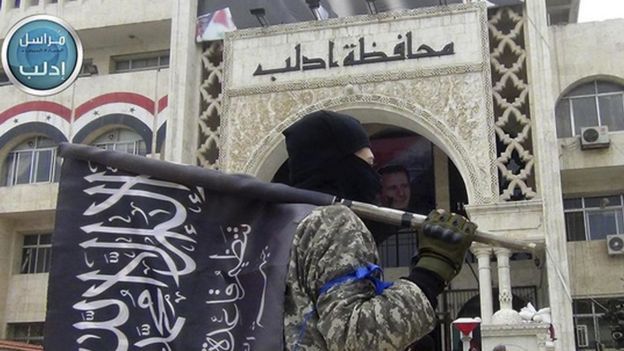
It was a relatively quiet week on the global terrorism front, so let me start this week’s look back by drawing to your attention a fascinating article posted at The Atlantic this morning profiling Abu Abdullah al-Muhajir, an Egyptian who was killed in Syria three weeks ago in an air strike carried out the United States.
Muhajir, a veteran of the Afghan jihad 1980s, is credited with developing the theological justifications for the extreme violence that would later characterize ISIS and other groups. At the time of his death he had broken with ISIS and thrown in with Jahabat Fateh al-Sham, formerly known as the al-Nusra Front, fighting against both his one-time allies and the Assad regime in northern Syria.
As the article, penned by reporters Charlie Winter and Abdullah K. al-Saud, puts it:
While there is a striking paucity of open-source information about him, the Egyptian national, a veteran of the Afghan jihad and long-time al-Qaeda associate, had a massive impact upon the development of jihadist thought in the last four decades. Indeed, it’s hard to overstate his importance in the context of modern Islamist terrorism—neither the Islamic State nor al-Qaeda would be where they are today without him.
The profile highlights Muhajir’s role as the “theological brains” behind the ultraviolence that characterized the emergence of AQI, al-Qaeda in Iraq, the precursor group to the Islamic State:
Ranging from ruminations on the merits of beheading, torturing, or burning prisoners to thoughts on assassination, siege warfare, and the use of biological weapons, Muhajir’s intellectual legacy will remain a crucial component of the literary corpus of ISIS—and, indeed, whatever comes after it—as a way to render practically anything permissible, provided, that is, it can be spun as beneficial to the jihad.
The full article is well worth your time if you are interested in understanding how religiously motivated terrorist groups justify the extreme levels of violence they characteristically exhibit. Here’s the link to the article again. Now on to this week’s list.
- Dec. 4, 2000 — Israel: Awad Selmi, senior HAMAS leader, is killed during a terrorist operation.
- Dec. 5, 2013 — Yemen: Al Qaeda in the Arabian Peninsula (AQAP) kills 52 and wounds 167 in a car bombing and gun attack on a military hospital in Sanaa.
- Dec. 6, 2000 — Sri Lanka: Landmine believed planted by the LTTE kills four bus passengers and wounds 21.
- Dec. 7, 2009 — Pakistan: Explosions in Lahore and Peshawar kill 58 and wound more than 150. No credible claim of responsibility.
- Dec. 8, 2009 — Iraq: Near-simultaneous vehicle bombs at government buildings kill 127. Al Qaeda is blamed.
- Dec. 9, 1976 — Northern Ireland: The Irish Republican Army carries out a series of fire-bomb attacks on shops in Derry.
- Dec. 10, 1992 — Ireland: The Ulster Freedom Fighters, a cover name used by the Ulster Defense Association, carry out seven incendiary bomb attacks on shops in Dublin and in other Irish towns near the border with Northern Ireland.